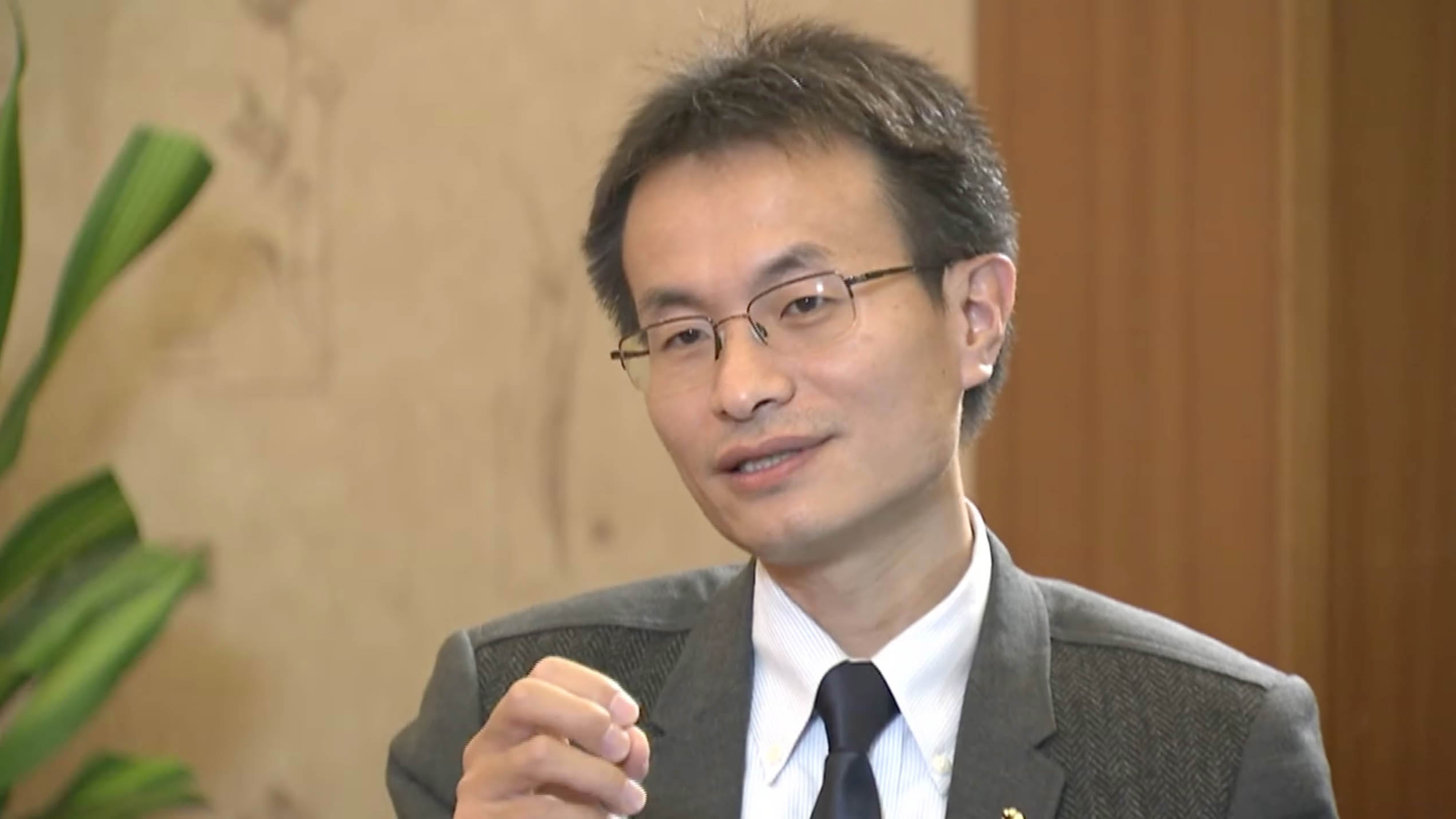
Tian Wei
17:48, 14-Mar-2018
Mission to Mars: A professor finds ways to produce oxygen on the planet
CGTN

By CGTN's World Insight
Professor Yang Peidong, a Berkeley carbon chemist and also a special guest of the CPPCC this year, talks about his latest research project on how he’s involved in a US mission to find the resource to produce oxygen on the planet Mars.
"The movie of 'THE MARTIAN' reflects some of my research interests, developing new materials for energy storage. More specifically, we call it artificial photosynthesis," said Professor Yang.
CGTN's host Tian Wei had an exclusive interview with Professor Yang on the sidelines of the Two Sessions.
"An easy example is sort of green leaf; the green leaf is doing photosynthesis every day, so the green leaf basically takes in carbon dioxide, water and absorb the sunlight, then converts them into oxygen. Like green plant release oxygen to the environment, but in the meantime, they also store the CO2, the carbon [dioxide], in another chemical called carbohydrate."
Professor Yang used this to explain his research in Berkeley. He said that over the past decade, they have been working on coming up with a material system that mimics the process.
"On Mars, basically there is no oxygen, but there is plenty of carbon dioxide and nitrogen. Just last year, we opened another NASA center, and this NASA center in Berkeley is to use our artificial photosynthesis technology to convert those CO2, carbon dioxide and nitrogen into useful chemicals."
World Insight with Tian Wei is a 45-minute global affairs and debate show on CGTN. It airs weekdays at 10.15 p.m. BJT (1415GMT), with rebroadcast at 4.15 a.m. BJT (2015GMT).

SITEMAP
Copyright © 2018 CGTN. Beijing ICP prepared NO.16065310-3
Copyright © 2018 CGTN. Beijing ICP prepared NO.16065310-3